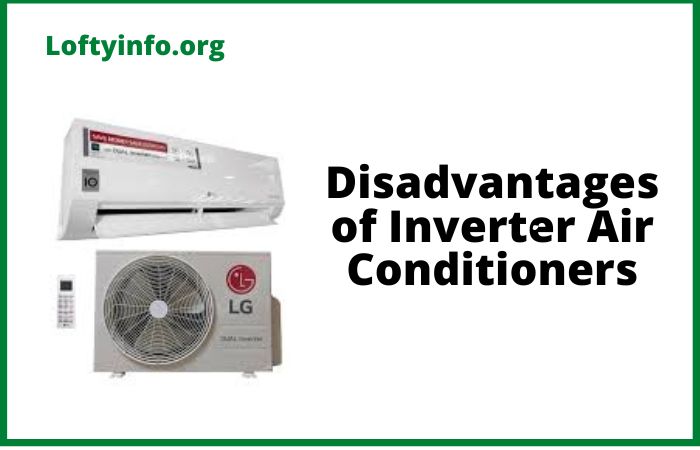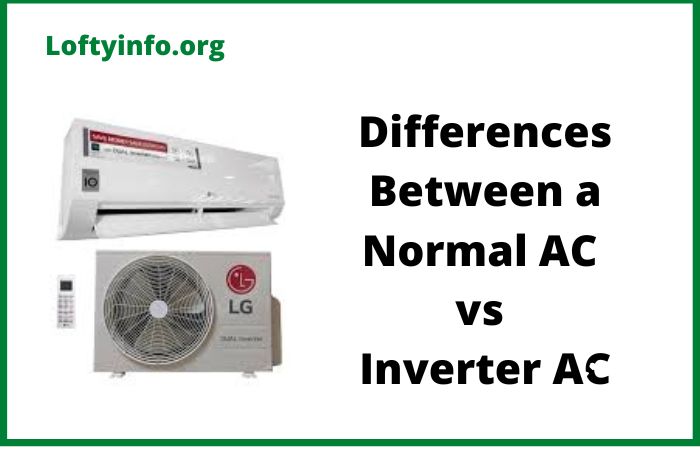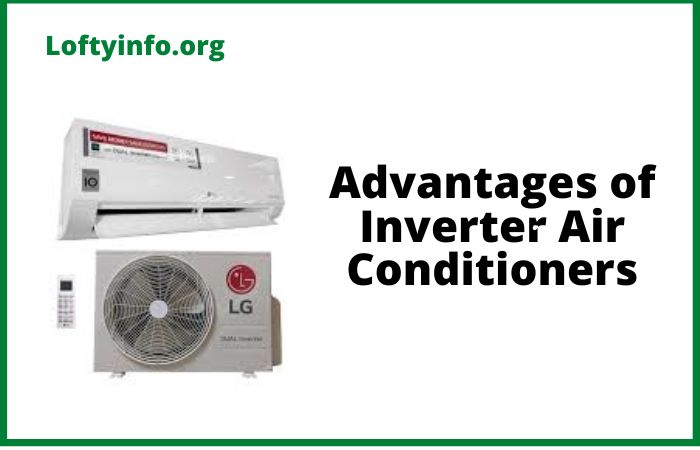Disadvantages of Inverter Air Conditioners
Inverter air conditioners have become really great for use especially for green energy powered houses due to its energy efficiency.
Irrespective of these advantages, inverter air conditioners have some limitations.
Knowing these drawbacks will help you make a better decision when buying.
In this guide, we will look at these disadvantages of using inverter air conditioners.
Disadvantages of Inverter Air Conditioners
1. Higher Initial Purchase Cost
Inverter air conditioners carry a significantly higher upfront cost compared to conventional non-inverter units.
The advanced variable frequency drive technology, sophisticated control circuits, and premium components contribute to manufacturing costs that are typically 20-40% higher than traditional AC units.
This price differential can be particularly challenging for budget-conscious consumers or those looking to cool multiple rooms, as the cumulative cost difference becomes substantial. The initial investment barrier often prevents many households from accessing the long-term energy savings that inverter technology provides.
2. Complex Repair and Maintenance Requirements
The sophisticated electronic components in inverter air conditioners make them considerably more complex to diagnose and repair.
Unlike conventional AC units with simpler on-off mechanisms, inverter systems contain intricate circuit boards, sensors and variable speed compressors that require specialized knowledge and diagnostic equipment.
This complexity translates to higher maintenance costs, as technicians need advanced training to work on these systems.
Finding qualified repair professionals can be challenging, especially in smaller towns or rural areas, potentially leading to longer downtime when issues arise.
3. Expensive Replacement Parts and Components
When inverter air conditioners require part replacements, the costs are typically much higher than conventional units.
The proprietary nature of inverter technology means that circuit boards, sensors, and control modules are often brand-specific and cannot be easily substituted with generic alternatives. A single control board replacement can cost several hundred dollars, sometimes approaching 30-50% of the unit’s original price.
The availability of spare parts may be limited, particularly for older models or less common brands, leading to extended wait times and potentially forcing premature unit replacement.
4. Sensitivity to Power Fluctuations and Electrical Issues
Inverter air conditioners are highly sensitive to electrical irregularities, making them vulnerable in areas with unstable power supply.
Voltage fluctuations, power surges, and frequency variations that might not affect conventional AC units can cause significant damage to inverter systems.
The delicate electronic components can be permanently damaged by sudden power spikes or brownouts, requiring expensive repairs or complete unit replacement.
This sensitivity necessitates additional investment in voltage stabilizers or surge protection devices, adding to the overall system cost and complexity.
5. Reduced Effectiveness in Extreme Temperature Conditions
Inverter air conditioners can struggle to maintain optimal performance during extreme weather conditions, particularly in very hot climates where temperatures exceed 45°C (113°F).
The variable speed compressor, while efficient under normal conditions, may not provide adequate cooling capacity when outdoor temperatures are exceptionally high.
This limitation can result in longer cooling times, increased energy consumption, and potential system strain.
In contrast, conventional AC units with fixed-speed compressors often maintain more consistent performance across a wider range of external temperature conditions.
6. Potential for Shorter Lifespan Due to Component Complexity
The numerous electronic components and sophisticated control systems in inverter air conditioners introduce multiple potential failure points that can reduce overall system reliability.
While the compressor in an inverter unit may experience less wear due to variable speed operation, the complex electronic controls, sensors and circuit boards are susceptible to degradation over time.
Heat, humidity and electrical stress can cause these components to fail prematurely, potentially resulting in a shorter overall lifespan compared to simpler conventional units.
The interconnected nature of these systems means that failure of one component can cascade into broader system issues.
7. Limited Compatibility with Existing Electrical Infrastructure
Inverter air conditioners often require specific electrical configurations and may not be compatible with older home wiring systems.
These units typically demand higher quality electrical connections, proper earthing, and may require dedicated circuits to function optimally.
Homes with older electrical panels or inadequate wiring may need costly electrical upgrades before inverter AC installation is possible.
The power factor characteristics of inverter units can sometimes cause issues with electrical meters or billing systems, particularly in regions with older utility infrastructure.
Conclusion
While inverter air conditioners offer undeniable advantages in terms of energy efficiency and temperature control, these significant disadvantages must be weighed carefully against the benefits.
The higher costs, complexity, and potential reliability issues make them unsuitable for certain applications and user profiles.
Consumers should evaluate their specific needs, local service availability, electrical infrastructure and long-term budget considerations before deciding whether inverter technology is the right choice for their cooling requirements.
high frequency inverter specifications explained





